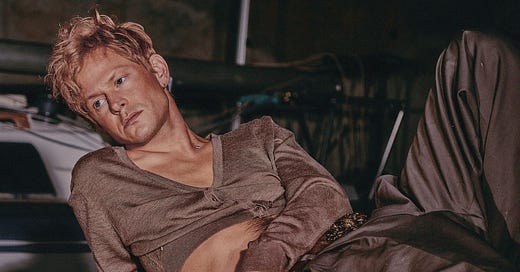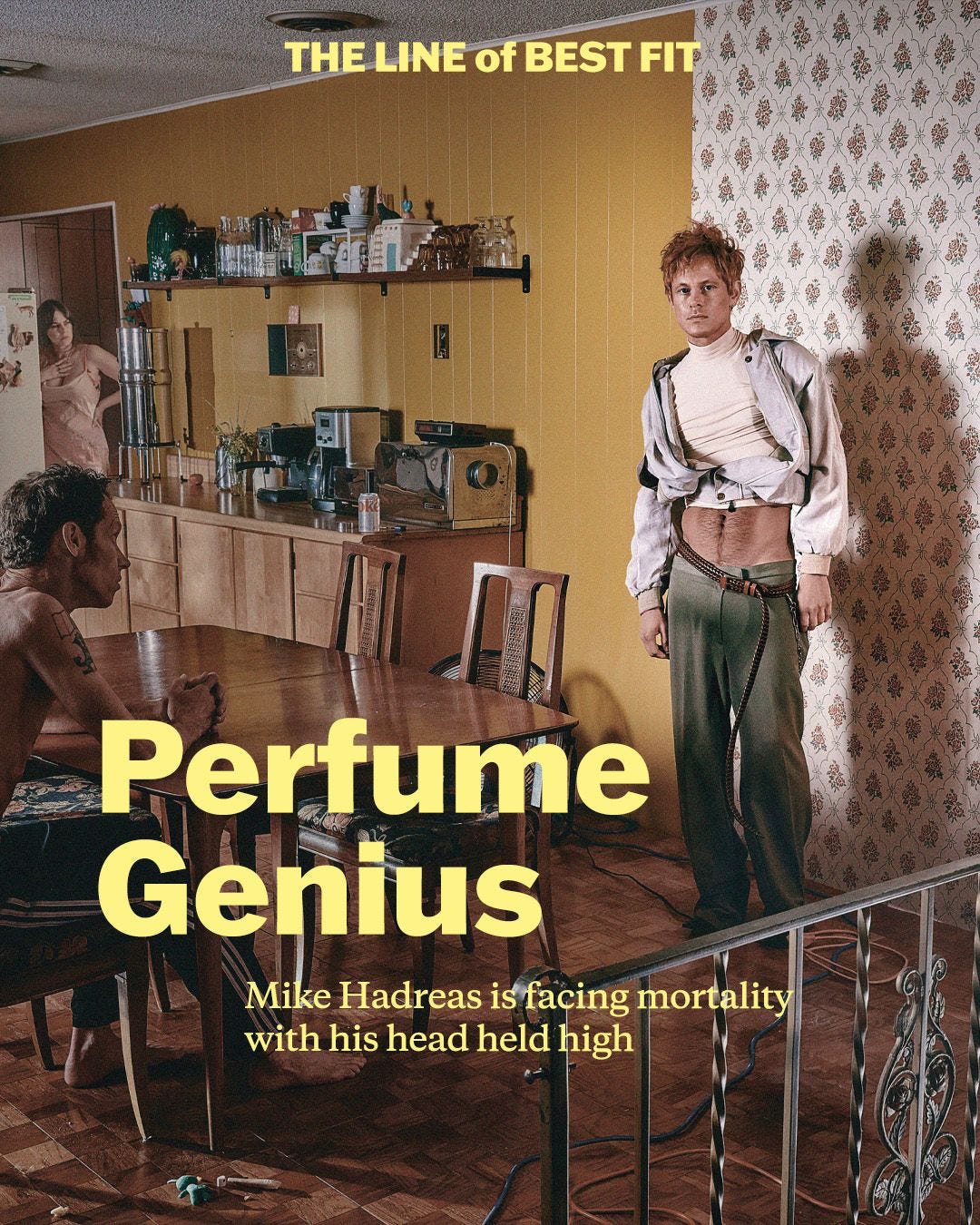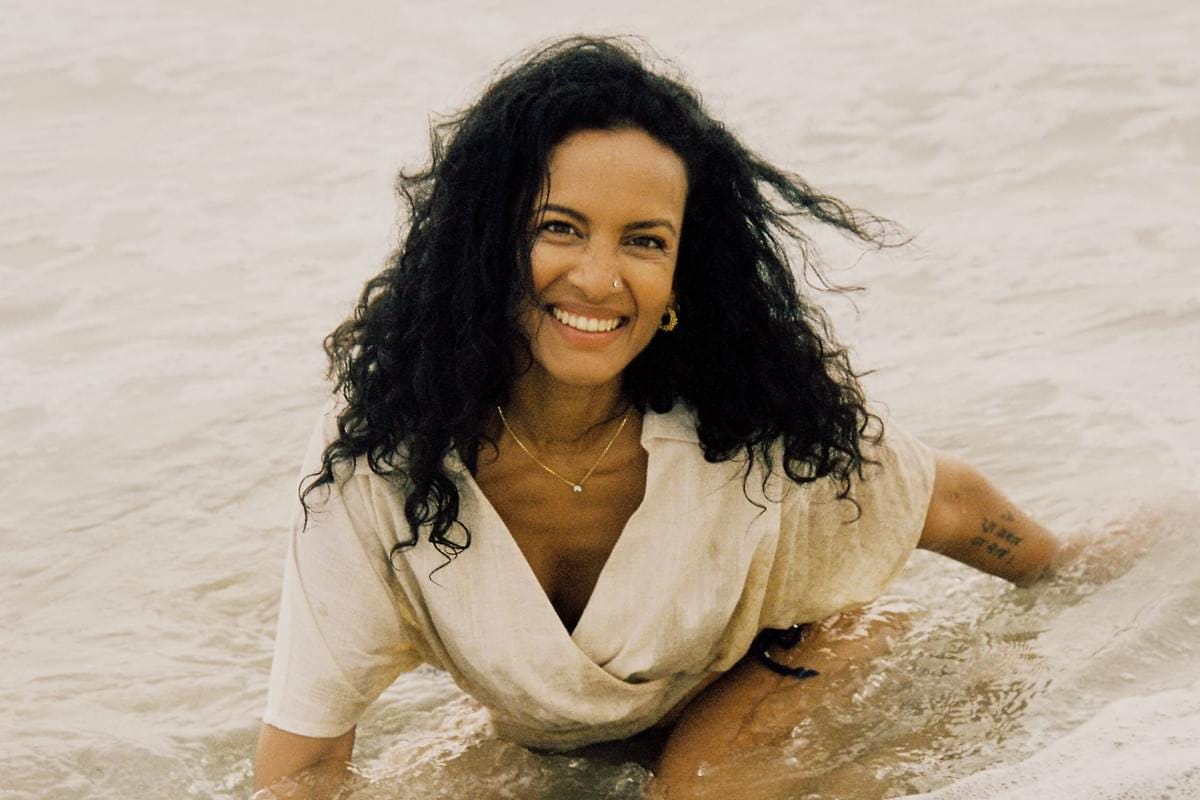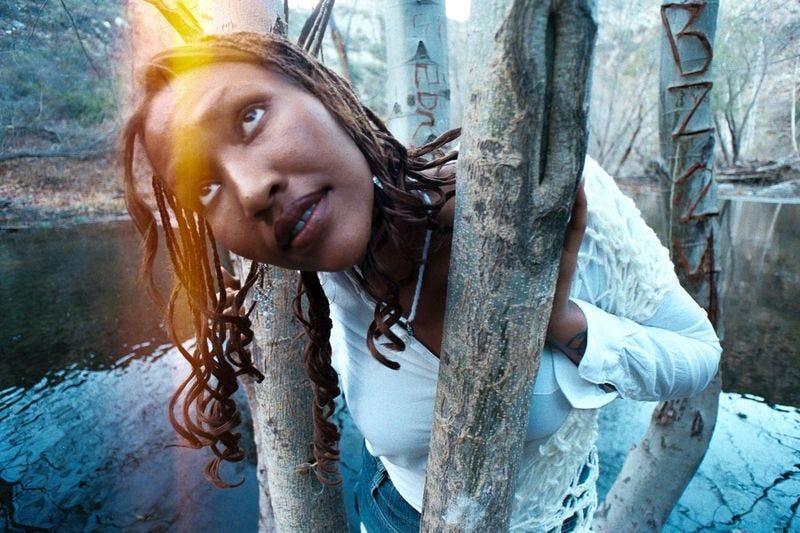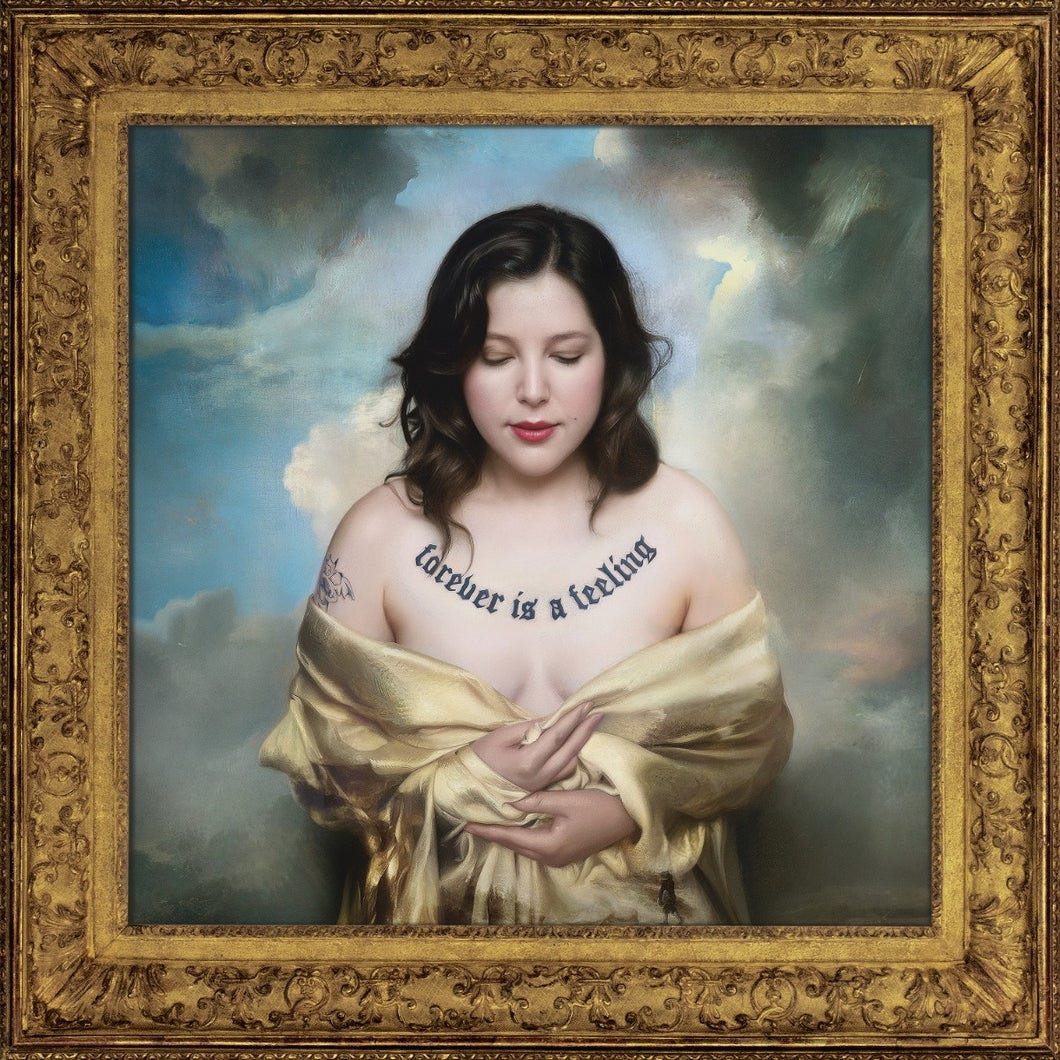The Friday Dispatch
Perfume Genius, Anouskha Shankar, Jordan Patterson, Kaleah Lee, Lucy Dacus and more
Perfume Genius faces mortality
Mike Hadreas is facing mortality with his head held high. On the seventh Perfume record Glory – out today – the Iowa-born songwriter is finding new ways to reckon with beauty, chaos, and vulnerability.
From the beginning it was Hadreas' voice that served as the source of the Perfume Genius' enchanting quality; a delicate, throat-caught lilt which sounds like he’s on the verge of tears. Since those early albums, the sound of Perfume Genius has expanded dramatically. Over time Hadreas set about channeling his music through a cast of audacious personas: the bohemian Queen, the silk-wearing Dandy, the biker rebel. He is now a mainstay in the alternative scene, collaborating with the likes of Jack Antonoff and the Yeah Yeah Yeahs, and about to embark on an international tour. When he began to work on Glory, the music he made in his parents’ home in Seattle began to loom large again. “I really love those first two records,” he declares. “I intentionally began thinking about how I wrote them because I really like the lyrics. There’s a zoomed-out grace and the humility was built in because I didn’t think anyone was going to hear them. For this album I was thinking of how to get back there. I had just gotten sober. I felt like I was on the other side of something and you can hear that I really wanted to be on the other side.”
Now 43 and living in LA with longtime partner and collaborator Alan Wyfells, Glory sees Perfume Genius dropping the era-defining personas and looking around at middle age to find everything changed, and yet extraordinarily the same: a well-established musician stuck with the same anxieties he had as a teenager; the same spiralling thoughts. "This one feels more like just me. It’s untidy because there’s a lot of questions which are in process and not figured out. A lot of the songs are plainspoken, which feels far more vulnerable than filtering that through some character.”
This week is another heavy-hitter for new releases, including Lucy Dacus’s Forever Is A Feeling; Unknown Mortal Orchestra’s IC-02 Bogotá; Spelling’s Portrait of my Heart; Perfume Genius’s Glory; girlpuppy’s Sweetness; Medium Build’s acoustic EP takeaways; and Sam Akpro’s Evenfall.
Anoushka Shankar on “Traces of You” and working with Norah Jones
The lyrics for “Traces of You” come from a poem I'd written that was quite a bit longer, in which I was really just trying to express a feeling of longing… for divinity, I guess, or some sort of spiritual connection, or whatever it may be. I was kind of writing towards that energy of feeling the essence of divinity everywhere, and I wanted to write it not as something like a prayer but more like a letter, which is a more intimate thing, and Nitin helped me to refine that.
The sitar you hear on the track was recorded in a single first take. I'd played it just to use as a reference for ideas, thinking I would go back and recompose it later. But by the time we’d recorded everything else we’d become so attached to that first take that we ended up keeping it. And then Norah came and sang.
As you know, our father passed away during the making of the album, and when it came out everyone kind of assumed that this song was about him. It’s funny, really, because the other two vocal songs on the album [“The Sun Won’t Set” and “Unsaid”] are more directly about him, whereas “Traces of You” speaks to something a bit broader.
Of course, because it’s quite broad, people can read into it in many different ways. It could be about loss or it could be romantic, or prayerful. It could be almost anything.
In terms of bringing in Norah, it felt like the right time. I think we were both in a place of comfort and confidence in our own music-making, and it was nice that we worked on a few songs because we got to do things in different ways.
She sang on two songs that I’d co-written with Nitin – this song and “The Sun Won’t Set”, which I developed a little bit with her. The third song, “Unsaid”, she and I wrote together on the day before we went into the studio. I wrote the lyrics on a plane and she helped me to put it to music, so we got to experience writing together for the first time. It just felt very natural and organic at that point.
I think that sometimes, with this kind of music, the amount of effort involved can become sort of invisible. Which is the whole point, of course. It should feel natural and easy by the time other people get to listen to it. But in order for it to be easy, there’s usually a lot of work involved.
Norah is obviously an incredible musician and calls herself a serial collaborator, and I’m a serial collaborator too. I’ve been working across different traditions for so long that when I come to the point where I’m sitting with someone from another music tradition, I’m not just sitting there with my sitar and a classical understanding of music. I’m sitting there with all the experience of the different genres I’ve experimented with or at least had to understand a bit about, and an open mind about how to approach my instrument in a way that’s not the way I was taught.
Now, this song really has a piece of my heart. My band and I will still play it every now and then, and it always feels really sweet. I like that it can take a lot of different shapes and iterations. It can be a beautiful instrumental piece, but it can also work with different kinds of singers, and I’ve had some perform it with me.
I did get a little sick of performing it after the album came out, and that’s because it’s one of those rare songs that we tend to play through in mostly the same way. A lot of my work has enough space to improvise or expand within the song, or at least change the song enough so that it doesn’t become too boring on a big, long tour. I wasn’t really used to the pop approach of just playing a song as it is. Now that it’s been years since that tour, though, playing it feels like a pleasure.
There was once a time when expense accounts were endless and when the glossies ruled all in culture. Don’t believe it? Well, Graydon Carter is here to prove it with his new book, When The Going Was Good. Sparing no details, the longtime editor of Vanity Fair takes readers through his wild tenure at the helm of one of the world’s most important publications. It’s engaging, delicious, and enough to make you wish you had been born 20 years earlier just so you could live it with him.
The introduction…
Meet Jordan Patterson, a 23-year-old taking songwriting to new heights. Get her on your radar now, because she’s one to watch.
Hometown… Greensboro, North Carolina.
Describe your sound… A Perennial Sanctuary taking a Porous look at the Firmament.
How you started making music… I was an avid listener since I was a child. I always loved to sing but was very shy. I picked up guitar when I was a teenager and have never looked back since.
Place you’re happiest… In the middle of nowhere.
A day you look back on fondly… I was in Paris with some friends. We were sitting by the Seine pretty late, waiting for a friend of ours to play, when this man came up to us and started rapping and asking us questions. He was pretty good. I spoke to him about Wyclef Jean and Lauren Hill in my broken french and then I bought him some tinned fish and candy assortment.
Hardest part of writing a song… Knowing when to stop.
Jordan Patterson’s “Right Person, Wrong Time” is out now.
Something Old, Something New
Every week, we share recommendations from the Best Fit community — one from the past, another from the present. This week, editor Laura David on Birdwatcher by Kaleah Lee (2024) and Forever Is A Feeling by Lucy Dacus (2025).
As winter turns to spring, I’ve found myself returning to Kaleah Lee’s Birdwatcher, an elegant, organic EP released this time last year. It’s an effortless ode to self-acceptance and change. This is a record that goes easy on you, perfect for the changing of the seasons. Lee has a special way of being and playing. Dainty acoustic guitars shimmer across each track, but her grounded vocal delivery keeps the songs grounded and true. “Where’d The Time Go?” is a standout, describing painfully but beautifully outgrowing someone and something. So too is title track “Birdwatcher,” an answer to the strangeness of being an outsider. Birdwatcher is perfect for introspection, a last vestige of comfort and hibernation before the world springs into action once again.
Today (or, at midnight last night), I finally got to unwrap Lucy Dacus’s new solo album, Forever Is A Feeling. It’s a tenderhearted return for an artist who so often specializes in ache and yearning. To be clear, this is still a record that’s going to pull at your heartstrings, but it might pull more gently than, say, Historian or Home Video. Something about listening to Lucy Dacus feels like coming home ad sitting on your porch after a long, hard journey. In times of crisis, I listen to Lucy to know there is a way forward. And after only one play of this record, I know already that this album will live in that same universe of creature comforts for me. Forever Is A Feeling is a beautiful exploration of love won, love held tight, and love allowed to grow. Dacus writes about the feeling of forever without pretence or expectation, a point of view that makes her portrayal of romance — platonic and non-platonic — so convincing. So, happy release day to a new classic. Go enjoy this with your favourite people today.
Listen to the week in new music by following our Discovery playlist
Dropping at midnight every Thursday, follow our playlist for a taste of the best new music from the most exciting breaking artists. Leading the selection this week are new tracks from Bedridden, Ava McCoy, Bria Salmena, Jahnah Camille, PUNCHBAG, and coverstars Ain’t.
“Playing hockey on an open rink in minus-30-degree weather certainly toughens you up for the road ahead. So there’s that.”

